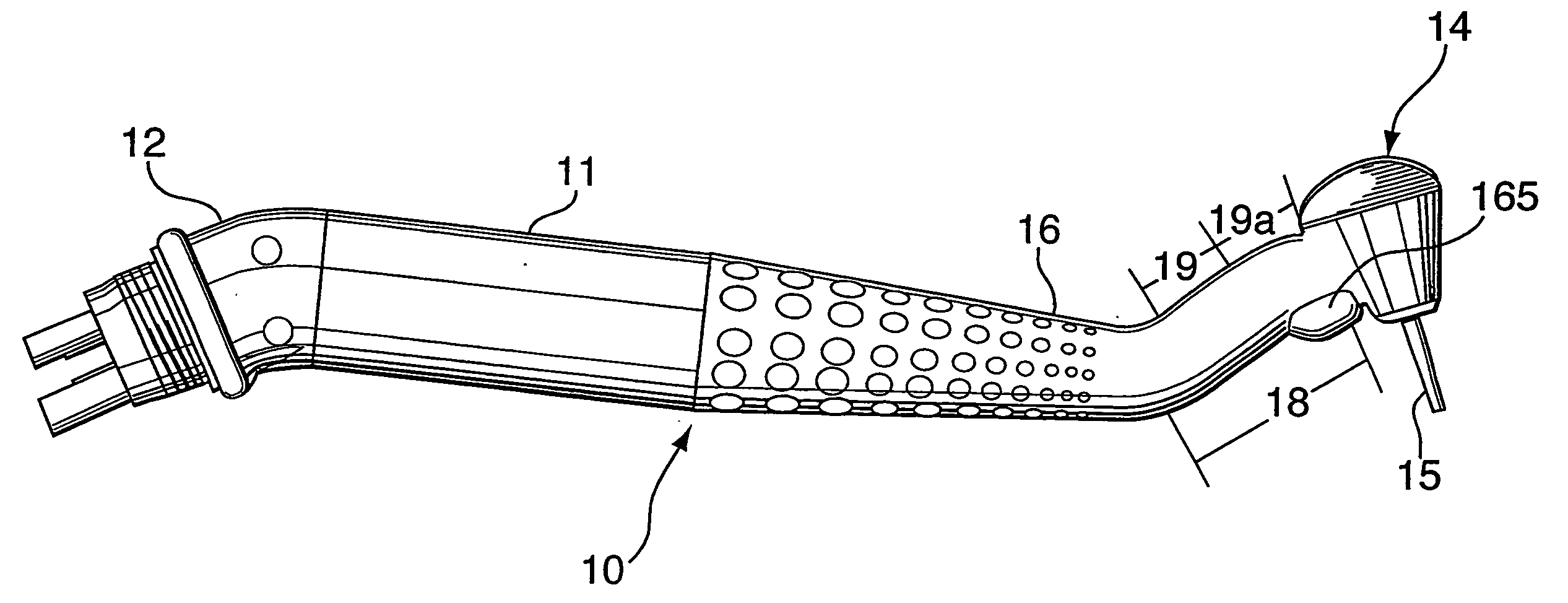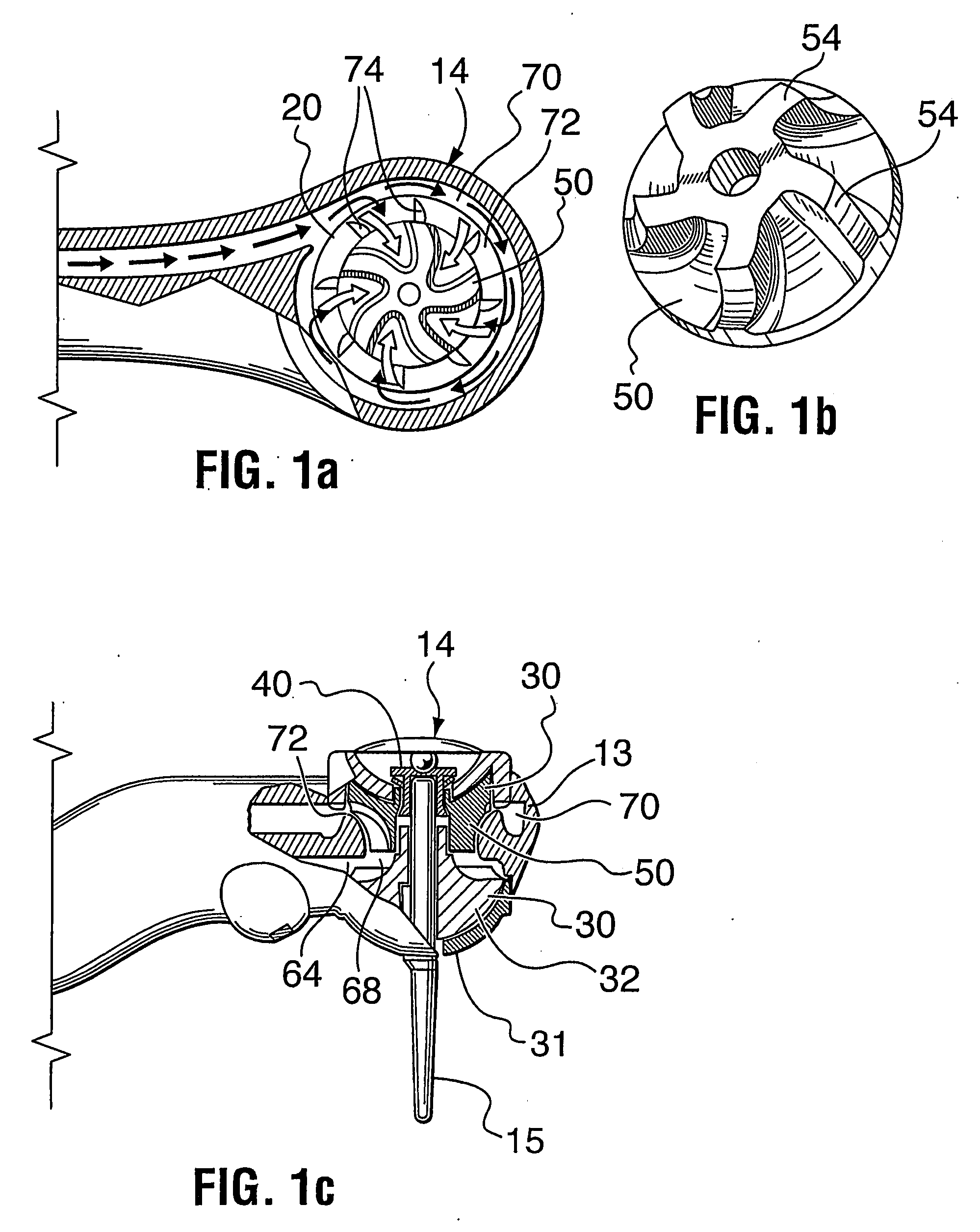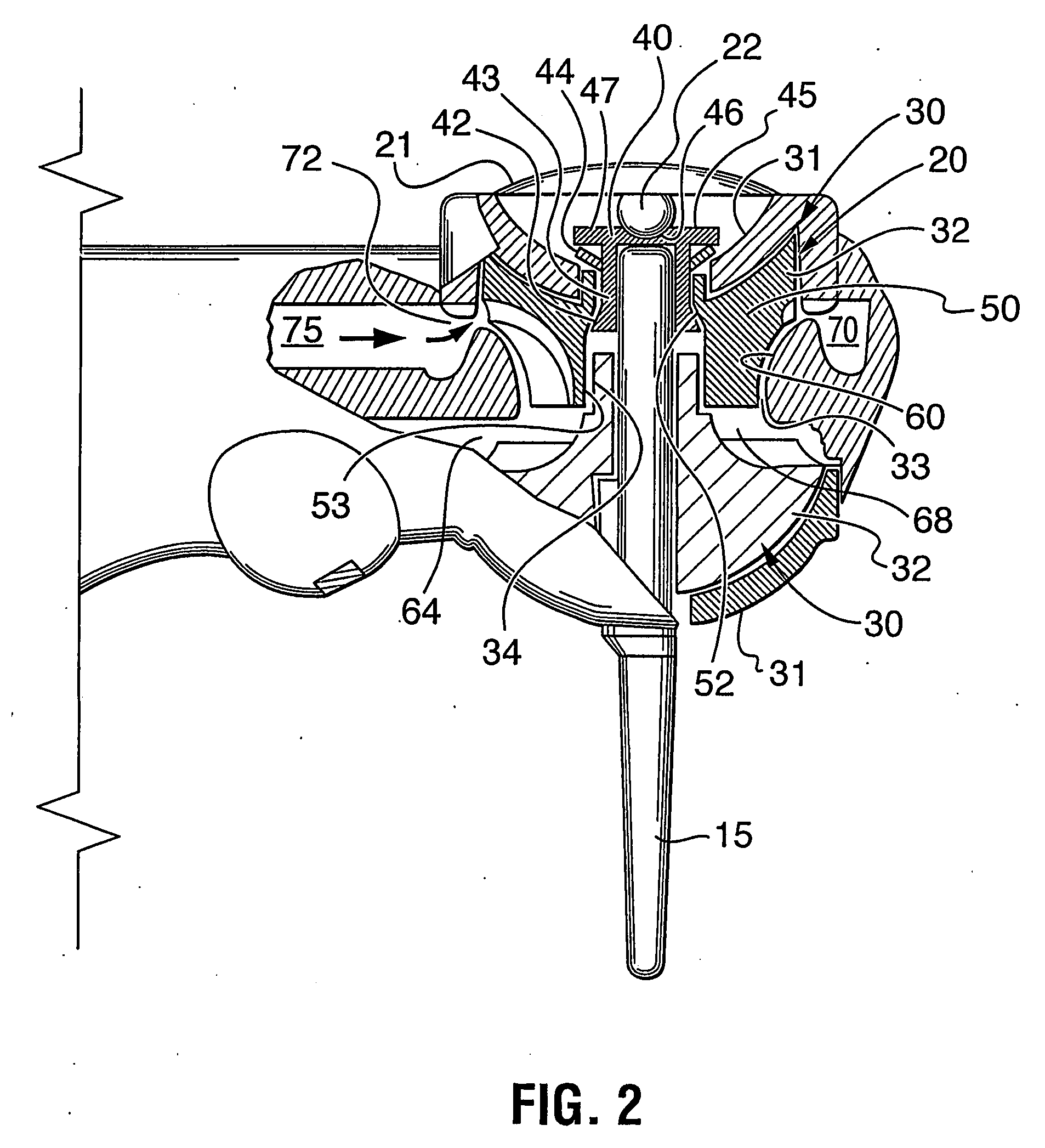Dental handpiece
a handpiece and dental technology, applied in the field of handpieces, can solve the problems of large stress on the bearing, insufficient service life of the bearing, and increased stress on the bearing
- Summary
- Abstract
- Description
- Claims
- Application Information
AI Technical Summary
Benefits of technology
Problems solved by technology
Method used
Image
Examples
Embodiment Construction
[0053] Generally, the present invention provides a handpiece for a rotating tool and in particular a medical or dental handpiece and a method of operating and controlling the handpiece. Although for the sake of simplicity reference is made in the following to a dental handpiece, all structural and functional features of the invention are equally applicable to medical handpieces and other handpieces for supporting high speed rotating tools.
[0054] As is apparent from FIG. 10, one embodiment of a dental handpiece 10 in accordance with the invention includes a stem / handle portion 11, a plug-in connection 12 for linkage with an umbilical cord 13 (see FIG. 5), and a neck / drive head 16 with a drive head 14 for rotatably supporting and driving a rotatable tool 15. The inventor has identified several construction features of currently sold dental handpieces, which are in need of improvement. The turbine unit, bearing unit, the burr (drill) and chuck interengagement, and the overall ergonomi...
PUM
 Login to View More
Login to View More Abstract
Description
Claims
Application Information
 Login to View More
Login to View More - R&D
- Intellectual Property
- Life Sciences
- Materials
- Tech Scout
- Unparalleled Data Quality
- Higher Quality Content
- 60% Fewer Hallucinations
Browse by: Latest US Patents, China's latest patents, Technical Efficacy Thesaurus, Application Domain, Technology Topic, Popular Technical Reports.
© 2025 PatSnap. All rights reserved.Legal|Privacy policy|Modern Slavery Act Transparency Statement|Sitemap|About US| Contact US: help@patsnap.com



